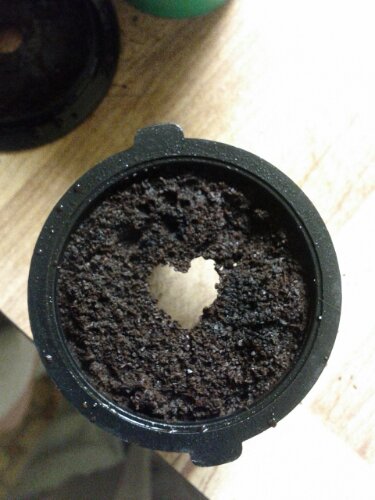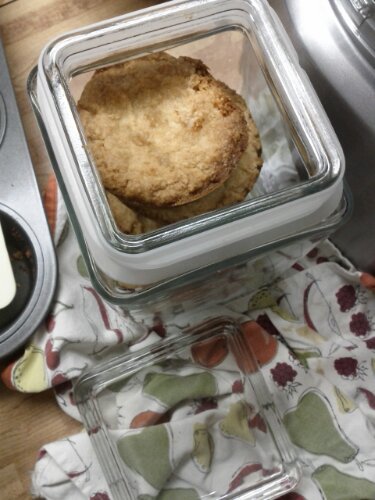Artist: Madison Koeneke, by permission
Near the beginning of July 2012, my father-in-law, Jack, went into the hospice wing of our local hospital for a major medication adjustment. Even with doctors calling the shots to tweak this medication or that one, the extent of what was now needed could only be accomplished in a hospital setting. Within three days, the medical team had miraculously come up with a medically-induced level of comfort and calm for Jack that we could all live with.
Ironically, the following morning, Jack took a turn for the worse and could no longer swallow, his respirations were significantly lower, and he could barely talk. Communication was minimal, yet we could read his face to know when he was scared or painful, versus when he was in minimal distress.
The nine days that followed baffled us all, as Jack demonstrated that at least in his case, a human being can survive with no food or water and much lower levels of oxygen than the medical profession would have us believe. There was nothing typical about the last weeks of his journey, so the team could only give us the widest range of possibilities as to what would transpire, how, and when.
After the death of her beloved husband, Mollie didn’t so much put on a brave face, as didn’t take her brave face off. She ate when I cooked, drank her coffee and Sprite regularly, took her meds as always, and slept about like usual. She insisted on doing a few dishes and a bit of simple laundry when she felt up to it, and bathed herself with no help. In most regards, she was doing remarkably well. She didn’t talk much, though, and when asked about TV preferences, the answer was always the same: “I don’t care nothin’ ‘bout television.” Or, from the looks of it, anything else.
It’s completely normal and expected that a grieving widow would lose interest in daily life, so it’s not that we thought she would start making new friends, take up latch-hook, or decide to tackle any of a dozen jigsaw puzzles we had lying around the house for her. The problem was that in our home, we could tell that Mollie still felt like a houseguest who came to visit and whose car had broken down at the doorstep: she seemed like someone stranded and too embarrassed to ask for a lift. We suspected that in our home, although she always did as we suggested, she would never let down her guard or feel at ease. We also feared that if we moved to her back home to live, she would start declining food and drink, might once again feel she should be ‘up and doing’ more than she really could, and might even start refusing her meds. But she would be home, and we would be with her.
Mollie’s home, nestled into the side of a mountain, has been her little own castle for 45 years. It is her place on the earth: it’s where she is completely grounded. So despite some misgivings, we moved back to the old homestead three months to the day after Jack died. Although we noted the significance, we didn’t dwell on it, interstate moves being what they are.
Each month on the 15th, I think about the giant hole in our lives that is the loss of Jack. It’s been one month, it’s been two months. Three months and we moved, then four, then five.
In month four, we had made several trips to the doctor with Mollie, who does not eat or drink nearly enough now, just as we feared. There were days of sadness in month five, of course, and a few tears here and there in front of the Christmas tree.
As the new year settled in, I moved around the house each day, doing this and that. I started my blog. I took down the tree and packed up the Christmas trimmings. I cleaned. As I wandered around each day, I kept hearing the phrase ‘six of one, six of one,’ but I just couldn’t write anything. I had developed a familiar routine over the many months that preceded Jack’s death, and I went through what had become ‘my chores’ with a fair amount of efficiency but very little enthusiasm. It didn’t seem to matter to me if I did one load of laundry, or three. I could whip up something for dinner, or we could just have leftovers. The only thing I really wanted to do was write something, anything, to express what this six month mark meant to me, how it was feeling to be in this space in time.
For over a week, thoughts and feelings clanked around in my head, a mishmash of negativity and confusion. Every night, my partner and daughter would ask, “Did you write today?” And each night the answer was the same: I just couldn’t do it.
It’s been quite a while since I felt anything like real depression. Since realizing a couple of years ago that eating anything containing wheat is just this side of a death sentence for me, I have managed some harsh blows from life with some difficulty, but never with the slightest sense that life is not worth living. To be honest, I was starting to dread that somehow I was slipping back into the primordial sludge of clinical depression and that awful free-floating generalized anxiety.
I slogged through each day, not wanting to face the question of whether I was actually experiencing my first wheat-free depression, but I did notice myself vaguely wondering, “what is *wrong* with me?!” Finally, one afternoon as I was bundling up in a wool coat and galoshes to take the trash out, it hit me: what I am feeling is old-fashioned grief, plain and simple.
For nine months, I had taken care of Jack, morning, noon and night. I helped him with the simplest of personal tasks that he’d done for himself for almost 80 years. I talked him through the myriad of confusions he got tied up in. I watched his every move, and caught him when he fell. I had a routine, and there was a strange unforeseen purpose in the million different things I did every day. What I did mattered, and I knew it. Most days, so did Jack, and many days, he said so. And in what sort of felt like a lifetime, and sort of felt like an instant, all of this was just gone.
Back when I was studying psychology, I ran across a little nugget of wisdom: evidently, grief will often hit the bereaved, hard, at the six-month mark. Months after the loss, everything seems sort of normal on the outside. Folks have stopped calling or stopping by to see how you are, and mostly you seem fine. There’s a new rhythm to the days, and the nights have stopped feeling like an infinity. Then BOOM, it hits you smack in the face. Life is dark, everything seems so pointless, and it’s a struggle to find any meaning in things.
As with several bits of such useful academic knowledge, I’d promptly forgotten about the six month effect. It came back to me about one minute after I realized that what I have been dealing with is ‘just’ grief. In a sense, the realization was a relief, but the kind of relief that didn’t feel like relief.
I still feel weighed down most days. I don’t sleep well. I care about a few things, but far fewer than is normal for me. I have great intentions, specific plans, but very little motivation, and almost no energy. Projects have stalled. People are waiting on me. I’m pretty much stuck right now.
This is the first time I’ve lost a significant person in my life when I wasn’t already dealing with a base-line level of depression and anxiety. The wave of grief I’m dealing with doesn’t really feel much different, and that’s what is so frightening to me.
I remind myself that this time, I’ve had a significant enough life event to account for what I’m feeling. I will ride it out somehow, and that’s all I have to do. If I have a day filled with overwhelming sadness, it won’t kill me. If I take a long time to get anything accomplished, it’s not the end of the world. If I can’t find the silver lining in any dark cloud, it’s not because the silver lining isn’t there. Just keep breathing.
I know that grief eases after a while, even if the loss is felt for a lifetime. I know that I don’t have to do anything in particular to get through this awful time, except just get through it. We humans are a lot more resilient than we think, and the human heart will heal itself, eventually leaving a scar in the place of the wound.
We could have stayed put: not resigned the good job, not vacated our darling little bungalow, not exchanged blue skies for gray. But this pit-of-the-stomach, sickening sadness would still descend on us all, anyway. Grief plays no favorites. Despite knowledge about the process, regardless how much support we have, none of us are immune to this particular kind of suffering. Whether it’s six minutes after the loss, or six months, regardless what we do or where we go, grief will come to call. At some point, we realize that what we are going through, is what we all go through.
The trick is to not be overcome by being overcome. Short of launching into full-blown self-destructive behaviors, whatever we can do to distract ourselves a little while still feeling the bulk of the pain is just fine. Whether we throw ourselves into our work, or feel frozen to the spot and unable to move around in our own lives, the particulars of how we get through the worst of the grief don’t much matter. Whatever we can do to fill the hours between the heartbreak that has happened, and the daybreak that is still to come, is really just six of one, half a dozen of another.


